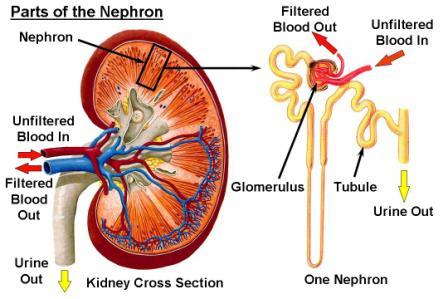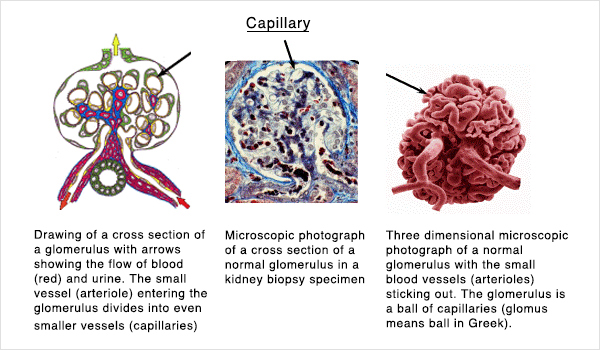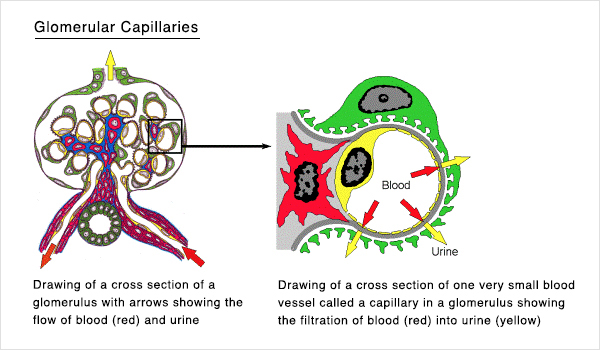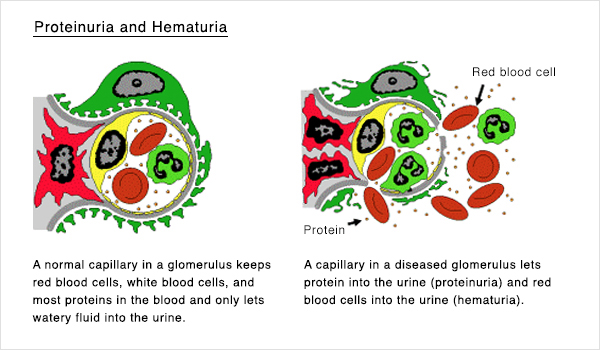Glomerular Disease
Kidneys have tiny structures that do the work called nephrons. Each of your kidneys contains about one million nephrons. Each nephron has a small blood vessel that brings in unfiltered blood, a glomerulus (glow-mare-Yule-us) that filters the blood, a tubule that caries away filtered waste materials in the urine, and a small blood vessel that returns filtered blood to the body. Diseases that injure the glomeruli are known as glomerular diseases. Read more about the kidney and glomerulus here.
Your Kidneys

Your blood carries oxygen and nutrients to your organs and tissues, and carries waste products to be flushed out of your body. Your kidneys control this process.
Your Kidneys:
- Control the balance of water in your body
- Tell your body when to start and stop making oxygen-carrying red blood cells
- Control how acidic your blood is
- Filter your blood and pass the waste products on to your bladder as urine
- Control your blood pressure
Your kidneys do three main jobs:
- Carry blood to and from the filters inside the kidney
- Filter blood
- Carry waste to your bladder
Symptoms of Kidney Disease
Kidney diseases can cause abnormalities in each kidney function, for example:
- Abnormal control of the amount of water in your body causes accumulation of too much water resulting in swelling (edema)
- Telling your body to stop making red blood cells causes too few red blood cells in the blood (anemia)
- Abnormal control of how acidic your blood is causes too much acid in the blood (acidosis)
- Reduced filtering of blood causes accumulation of waste products (such as urea) in blood (uremia)
- Abnormal control of your blood pressure causes higher than normal blood pressure (hypertension)
 The Nephron
The Nephron
Nephros is the Greek word for kidney. Your kidney doctor is called a nephrologist because he treats kidney diseases.
The tiny structures that do the work in your kidneys are called nephrons. Each of your kidneys contains about one million nephrons.
Each nephron has a small blood vessel that brings in unfiltered blood, a glomerulus (glow-mare-Yule-us) that filters the blood, a tubule that caries away filtered waste materials in the urine, and a small blood vessel that returns filtered blood to the body.
The Glomerulus


Glomerular Disease
Diseases that injure glomeruli (plural for glomerulus) are called glomerular diseases. Laboratory analysis of the urine from people who have glomerular disease often shows protein in the urine (proteinuria) and blood in the urine (hematuria).

If you are interested in copyright information on any images included in this web site, please e-mail Caroline Poulton.